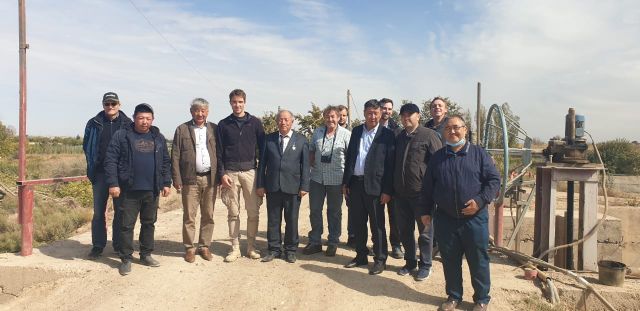Behind the scenes of European project cooperation: How does innovation management work?
January 31, 2023
The European Commission funds project consortia with the aim of promoting Europe’s innovative strength and bringing innovations more quickly to the European market and establishing them sustainably. As an expert in innovation management, Steinbeis Europa Zentrum works as a catalyst for the European Commission and project consortia.
Within the application stage, Steinbeis Europa Zentrum already acts as enabler and, if desired, also as project partner by accompanying the development of solutions and innovations on the way to a successful market launch. Together with the partners, our systematic approach enables the development of solid exploitation strategies, action plans and business models for commercially exploitable project results. In this context, intellectual property management plays an important role: through purpose-driven knowledge transfer and solution-oriented exchange, partners are enabled to adequately protect their project results for later exploitation.
The challenge lies mainly in the complexity of the different expectations and goals of the individual project partners, since the number of European and international partners in EU projects can range between 10 to 40.
Innovation management in Hydro4U
Small-scale hydropower is not extensively exploited in Central Asia despite considerable potential to satisfy unmet electricity demand and chart a new way forward in cooperative cross-sectoral management of shared waters.
Hydro4U will offer innovative, modular and standardised hydropower solutions for both low-head and medium-head application. In addition to direct market access for the participating project partners, Hydro4U will facilitate market access for European hydropower manufacturers and service providers in Central Asia as a whole.
Steinbeis Europa Zentrum accompanies innovation processes
Starting from the very beginning with the project conception phase, Steinbeis Europa Zentrum supported the coordinating Technical University of Munich, together with the 11 other European and international partners and accompanied them through the application process.
Target Group perspective and expectations
In Hydro4U, partners from both Central Asia and the European Union are working together on project implementation to contribute to sustainable and environmentally friendly energy production for Central Asia through scientifically supported activities and the testing of technological solutions. Close cooperation between all stakeholders and investors involved is an essential aspect of Hydro4U. The different expertise of the partners (including industry, science, politics) leads to diverse perspectives on the interrelationships between ecology, technology and society, which have to be taken into account in innovation management, especially in exploitation strategies.
Innovation management and exploitation
Steinbeis Europa Zentrum, as partner in Hydro4U responsible for exploitation, is meanwhile working systematically with the project partners to describe the innovative project results in terms of content, to define the exploitation intentions as well as to clarify ownership and access rights. The project partners, through their different expertise, co-develop very good approaches to solutions for the common challenges. Steinbeis Europa Zentrum for instance, organised interactive pitching sessions on individual project results. In a pitch, each of the participating partner organisation had presented its favoured project outcome and the associated challenges to the consortium. Through the resulting feedback from different perspectives as well as through the targeted exchange, further synergies between the partners could be established. Overall, these pitching sessions received very positive feedback and resonance from the partners.
This collaborative approach is consistently promoted and encouraged by Steinbeis Europa Zentrum. The most promising project results are selected in the course of the project and, in a next step, small working groups will then elaborate different aspects, for instance the Central Asian framework conditions for market entry and adequate business models. Furthermore, future steps and responsibilities for a successful and effective utilisation of the project results are also determined within these groups.
With the involvement of Steinbeis Europa Zentrum, a clear demarcation and description of the jointly developed project results is ensured, which further enables the clarification of the Intellectual Property situation including the access rights as well as responsibilities for further exploitation steps. In addition, the development of an exploitation strategy is secured as well as the results of joint partner contributions. This also extends to market analysis from different perspectives. Moreover, with Steinbeis involvement in the project, participatory approaches are further established in Central Asia as well as future steps and responsibilities for successful exploitation of the project results.
Author: Isabelle Dubreuilh, Steinbeis Europa Zentrum
Picture Credits: Bertalan Alapfy, Technische Universität München

